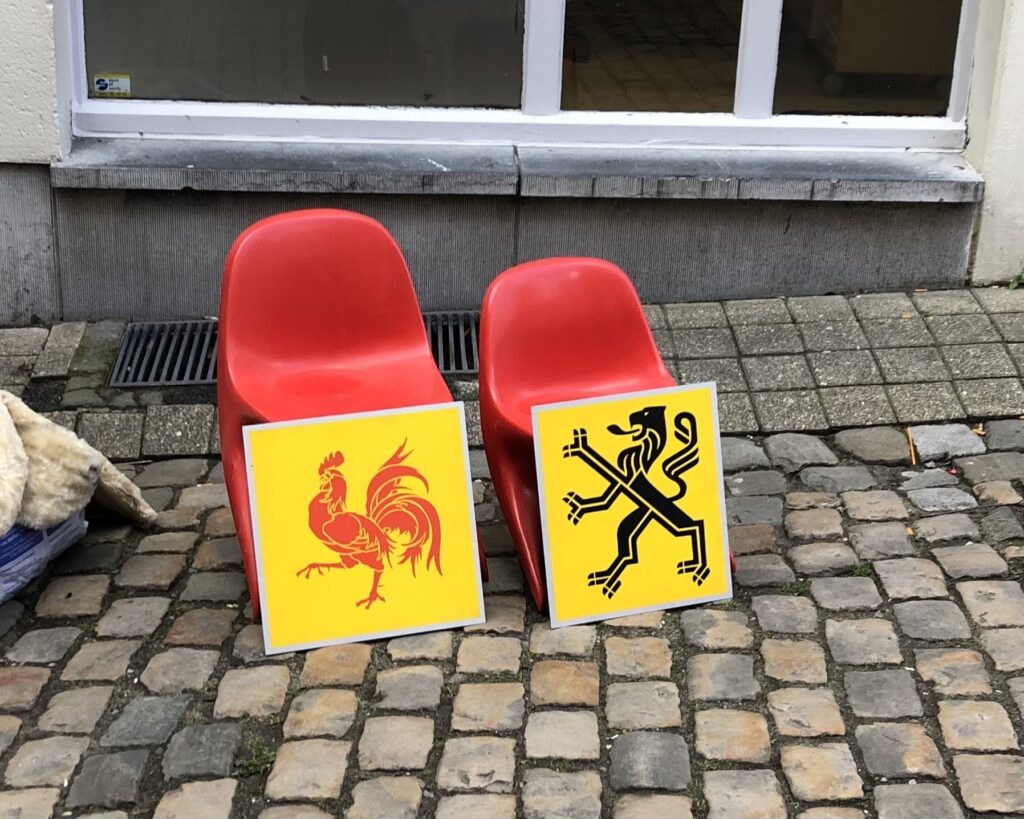The language divide in Belgium has recently resurfaced again in political debate, as interim president of the Christian Democrats CD&V party Sammy Mahdi has criticised the fact that learning Dutch in Francophone schools is not compulsory.
The debate was revived once again when the leader of the Francophone liberal MR party Georges-Louis Bouchez said that the fact that he does not speak Dutch "is the fault of the Walloon school system." And Bouchez is not alone in that regard: very few young people in Wallonia have a good command of Dutch by the time they leave secondary school, reports L'Avenir.
"We live in a country where we have to try to understand each other. It is often a question of respect too. It goes both ways," Mahdi said on RTL recently, adding that he also feels like the knowledge of French in Flanders is deteriorating.
However, having basic knowledge of both languages is really important "if we really want to shape this country," he said. "We can talk about re-federalisation, about how much money the state can give to the regions... But everything starts with respect for learning the other's language."
"And I really think that it is a lack of respect that, on the Francophone side, the politicians do not decide to make the Dutch language compulsory in French schools," Mahdi added. In Flanders, pupils are taught French from their fifth year of primary school, when they are aged 10.
Related News
- Ixelles moves local culture beyond Flemish-Francophone divide
- 'Can't ignore English': Belgium needs to re-think languages, says Sven Gatz
- Nederlands, AUB: Brussels communes criticised for Francophone bias
The language question has been a recurring issue in Belgium for a long time, and drew a lot of attention in 1996, when then-Minister of Education in French-speaking Belgium Laurette Onkelinx criticised the lack of Dutch skills in Wallonia and wanted the francophone community to achieve a level of knowledge in both languages by 2001.
Yet, students in Wallonia and the French-speaking part of the Brussels-Capital Region still fall short of speaking bilingually over 20 years later. Still, Dany Étienne, a specialist in language teaching at the Université Saint-Louis de Bruxelles, disagrees with Onkelinx' goals.
"Laurette Onkelinx did a lot of damage to the school with this famous sentence she uttered in the 1990s. Bilingualism cannot be learned. It appears in an environment where one is equally exposed to two different languages," Étienne told L'Avenir.
"One could almost speak of two mother tongues. You cannot become bilingual by learning a foreign language at school. If you pursue this goal, you will be disappointed. And it will not be a slight against the work done by teachers in the classroom," he added.
Language learning in Belgium
Étienne added that throughout secondary school in Belgium's francophone community, pupils learn a first foreign language at a rate of four hours per week for 35 weeks over six years, which, according to the European Framework of Reference for Languages, should give students a B2 language level.
Factors such as age, motivation and knowledge of other languages, however, also influence how much students learn.
According to Étienne, transitional education is about preparing students for higher education: if the knowledge learnt at secondary school enables pupils to pursue higher education, the school's purpose is fulfilled.
"If you ask any teacher, regardless of the subject they teach, they will tell you that there should be more hours. But with two modern languages at a rate of four hours per week, it is good," said Étienne.
He stressed that there are inconsistencies in the system that prevent effective language learning, such as the possibility of taking Dutch in primary school, then English in secondary, and going back to Dutch later on. For Étienne, the best advice is to keep students learning the same foreign language and be consistent.
Language development
The earlier a child learns languages the better, as children up to three years old are capable of learning any language. After the age of eight to ten, learning a new language becomes less natural, which is why it would be ideal to familiarise children with new languages as early as kindergarten.
When you wait until the age of 12 (when they start secondary school) to expose a child to a foreign language, it is often too late, according to Étienne.

